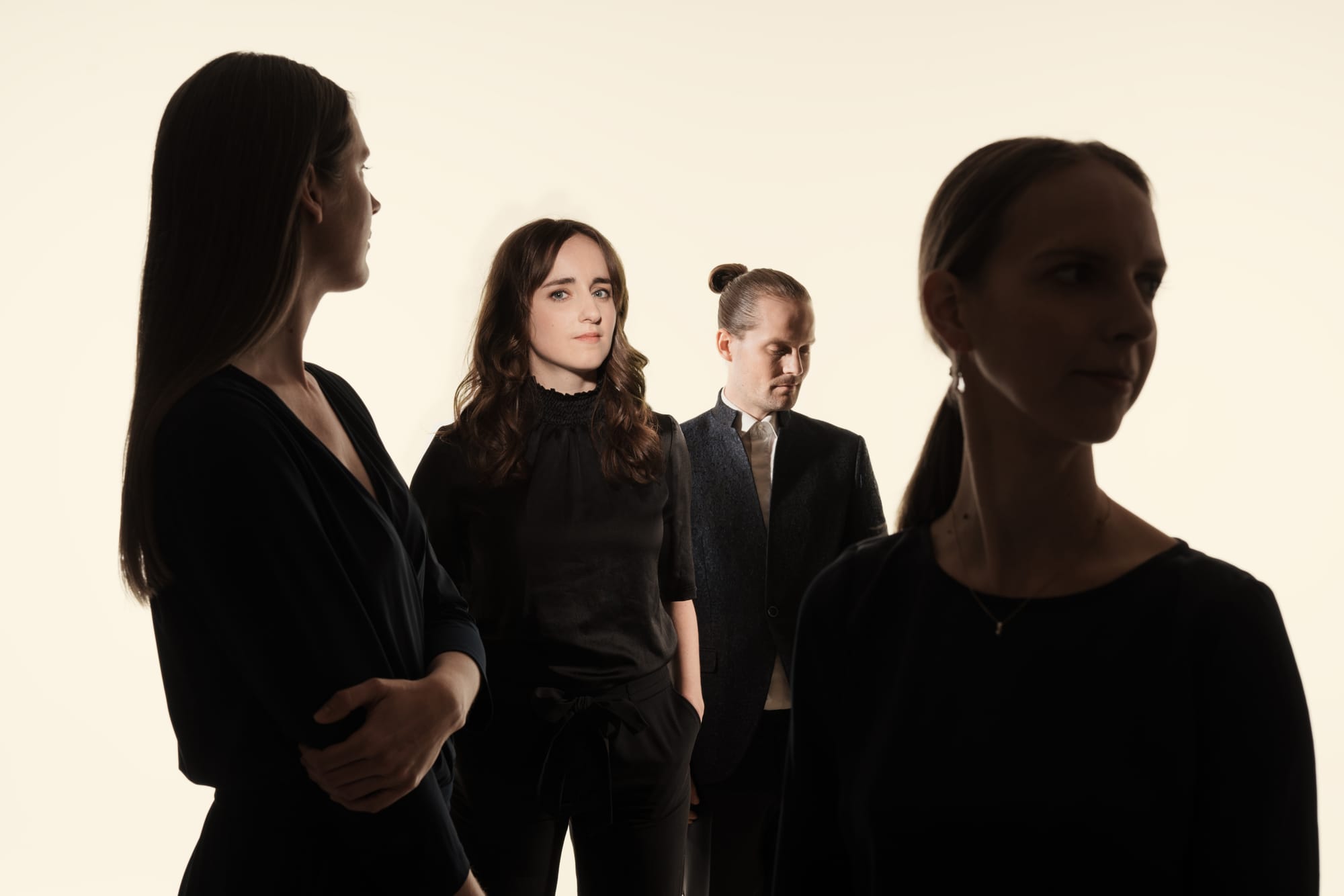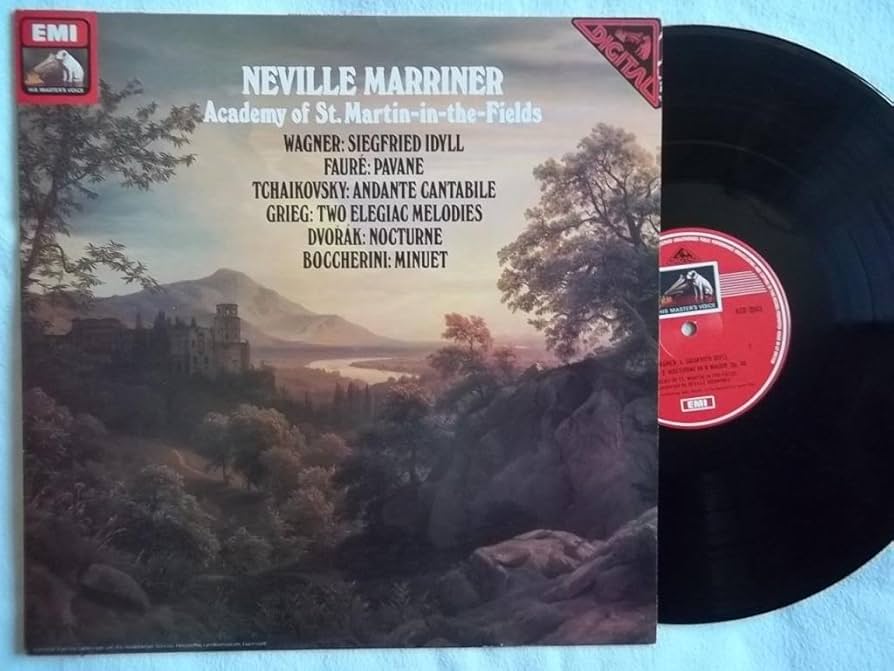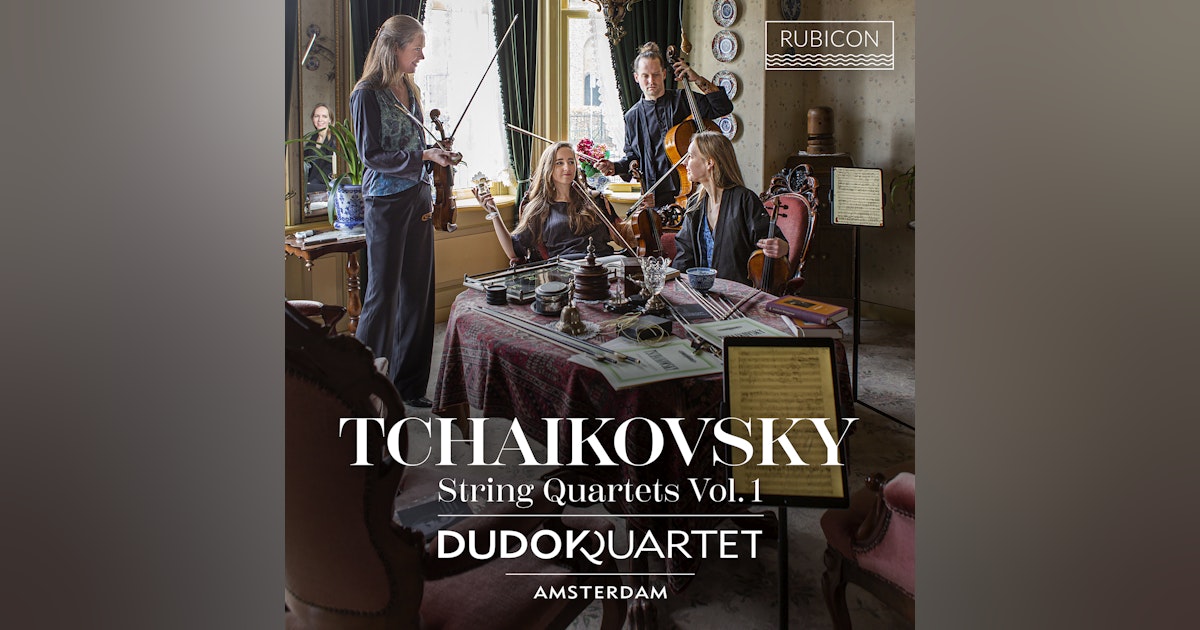More Tchaikovsky: The Dudok's first volume of quartets

The Dudok Quartet Amsterdam is interesting firstly in that they boast beautiful vintage instruments and they perform Tchaikovsky with unwound gut brings nd period bows. It is the continuation of a journey begun in 2020 when the Dudoks used gut strings to explore the complete string quartets of Brahms for their debut album on Rubicon Classics.
This use of gut strings obviously brings challenges in its wake. As Dudok Quartet David Faber says:
You can hear the naturalness of the material reflected in the sound these strings produce - an added dimension that makes you perceive the music as more flexible, raw and intense.
Even the approach to booklet notes is fresh: two timelines, alternating, one Tchaikovsky's, the other the Dudok's journey to where they are now.

The First Quartet sets the stall: the opening Moderato e semplice emerges as fresh but also a little raw. Every nuance is considered. Yesterday, we had the outward-facing orchestra works on Chandos; today, the inward-facing chamber music. Tuning is perfect from the Dudok Quartet, incidentally; first violin Judith Van Driel is impeccable in the higher registers:
The famous Andante cantabile emerges just as beautiful, but with complete clarity of texture. The Dudok's expressivity is most appealing:
It is certainly very different to the version I grew up with (and many of a certain generation did, too): the sting orchestra version in an EMI performance by the Academy of St Martin-in-the-Fields and Neville Marriner, on an LP of shorter, popular pieces. Still a great performance, but of.different, more upholstered, age:
For a bit of token nostalgia, this was the sleeve, proudly announcing the recording's “DIGITAL” status:

The Scherzo with the Dudok Quartet buzzes with energy. And so it should: the marking is “Allegro non tanto e con fuoco”. There are moments of near-Modernity in this performance. The old parallel between historically-informed performance and restoring an encrusted paining certainly holds here:
The finale's defining factor is rhythm. The Dudok Quartet give one of the most sprung performances I have heard, Meaning that when the sudden pianissimo ensemble passage occurs, the contrast is maximal; as is, then, the frantic coda. Tchaikovsky's affinity to dramatic canvas is writ large in the drawing room:
The Second Quartet begins with a movement of the utmost sophistixaion. No allegro in sight here: Adagio followed instead by Moderao assai, quasi andantino. The Dudok recognise that the music must move, though, and I suspect their tempo choices are as historically informed as their performance practices. Sudden stabbing accents remind us of the underlying pain of this music. More, the Dudok Quartet presents an operatic scena without words:
The Second Quartet is a very different beast than the First. The Scherzo: same name, different territory. Less chainsaw awaiting a tree now, the energy here is more potential the realised, and definitely restless and all the more powerful for it, with the Trio gorgeously tender:
It is fascinating to hear the opening of the third movement played on these instruments: the gesture appears as a real cri de cœur. Core Tchikovskian figures (the “sighing” motifs) emerge as dripping with meaning here, while harmonic opening outs are like windows of hope:
The finale mirrors that of the First Quartet in its rhythmic drive - a drive that is perfectly controlled. This is playing both perfectly calculated and full of energy:
Finally, Dudok cellist David Faber's arrangement of Lensky's famous aria from Tchaikovsky's opera Eugene Onegin. It is the perfect close, not least as it implicitly honours the operatic tendency of some of Tchaikovsky's writing in his quartets (a last as projected by the Dudok Quartet). The aria has an easy flow here; and I like the tasteful use of portamento:
This disc can be purchased at Amazon here. The Marriner box is available here.


